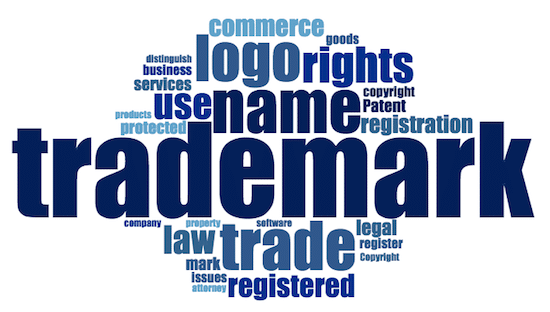When you start a new business, one of the most exciting yet challenging tasks you’ll face is choosing the perfect domain name. It’s a decision that will impact your startup’s online identity, marketing efforts, and ultimately, how potential customers find you. Your domain name is more than just an address—it’s a reflection of your brand, values, and aspirations.
But with millions of domain names already registered, how can you choose one that fits your startup’s goals and stands out in the crowded digital space?
In this post, we’ll break down the essential steps to help you choose the right domain for your startup, from understanding what makes a good domain name to avoiding common pitfalls that could hurt your brand.
1. Start with Your Brand and Vision
Why It Matters:
The first step in choosing a domain is to align it with your startup’s brand. Your domain should represent your business’s identity, values, and vision. It’s important to consider the long-term direction of your company and how the domain will fit into your overall brand story.
What to Do:
- Brainstorm your brand message: Think about the key words or phrases that define your business. What are your core values? What problem does your startup solve? Incorporate this into your domain name.
- Consider future growth: While it’s tempting to focus on what’s trendy right now, make sure your domain name can grow with your business. Avoid using overly niche terms that may limit your future expansion.
- Test for brandability: A great domain name should be easy to remember, pronounce, and spell. Ensure that it sounds good when spoken aloud and isn’t too complicated for people to type into a search bar.
Example:
If you’re launching a startup that offers sustainable fashion, a domain name like EcoStyle.com could be a great choice, as it clearly conveys your brand’s focus on eco-friendly fashion.
2. Keep It Short, Simple, and Memorable

Why It Matters:
A domain name that is short, simple, and easy to remember is a key factor in building a strong online presence. Think about it—how often do you forget or mistype a domain that’s long or complicated? A concise domain name will make it easier for people to find you, share your site, and remember your brand.
What to Do:
- Limit the number of characters: Aim for 6–14 characters if possible. Short domains are not only easier to remember but also more user-friendly.
- Avoid numbers and hyphens: Numbers (e.g.,
coolapp4you.com) and hyphens (e.g.,best-selling-products.com) can confuse people and make it harder for them to find your site. Stick to letters only. - Make it easy to pronounce: A domain that is phonetically clear and simple to say increases your chances of getting repeat visitors and word-of-mouth referrals.
Example:
A domain like FreshBites.com is easy to remember, pronounce, and type—perfect for a food delivery startup.
3. Use Keywords Wisely
Why It Matters:
Incorporating relevant keywords into your domain name can help with SEO (search engine optimization) and make it clear what your business does. A keyword-rich domain can help your site rank higher in search engine results when people search for terms related to your industry.
However, it’s important to balance keyword relevance with brandability. Too many keywords can make a domain sound generic or spammy.
What to Do:
- Focus on primary keywords: Choose a domain that includes a primary keyword related to your industry, product, or service. For example, a domain like BestTechGadgets.com immediately tells users what your website is about.
- Avoid keyword stuffing: Don’t overload your domain name with unnecessary keywords. You want it to feel natural and professional, not forced.
- Think about SEO: Consider how your domain name might help you rank for relevant terms. While it’s not a guarantee, a domain with a strong keyword can give you an initial SEO boost.
Example:
If you’re launching a digital marketing startup, a domain like SocialMediaExperts.com clearly conveys what you offer and helps you target users searching for social media services.
4. Choose the Right Domain Extension
Why It Matters:
The domain extension (also known as a TLD—top-level domain) plays a significant role in your startup’s domain name strategy. While .com is the most popular and widely recognized extension, it’s not your only option. Newer TLDs like .io, .co, and .tech are gaining popularity, especially in the tech industry.
What to Do:
- Stick with .com when possible: If it’s available, .com is still the gold standard for domain names. It’s universally recognized and trusted by users.
- Consider industry-specific TLDs: If your business is tech-related, a domain with .io or .tech might be a better fit. For non-profit organizations, .org could be a good option.
- Check for availability: If your desired domain name with a .com extension is already taken, explore using other TLDs—just make sure it aligns with your business and is easy to remember.
Example:
If your startup is a technology company, a domain like InnovativeTech.io could be more fitting than a generic InnovativeTech.com if the .com is taken.
5. Check for Trademarks and Legal Issues

Why It Matters:
Before committing to a domain name, you must check for trademarks or other legal issues that could arise in the future. Choosing a domain name that infringes on an existing trademark could lead to legal disputes, a loss of your domain, and potential damage to your startup’s reputation.
What to Do:
- Conduct a trademark search: Use tools like the USPTO (United States Patent and Trademark Office) or international databases to ensure your domain name doesn’t violate any existing trademarks.
- Check for domain disputes: Some domains may be tied to previous owners who have a legal claim over the name. Use services like Whois to check the domain’s history.
- Consider international markets: If you plan to expand globally, ensure your domain doesn’t have negative or inappropriate connotations in other languages or regions.
Example:
If you’re thinking of using AmazonElectronics.com for an electronics store, you’d want to avoid it due to the obvious trademark conflict with Amazon, a globally recognized brand.
6. Think About Your Target Audience
Why It Matters:
The domain name you choose should resonate with your target audience. Whether your startup caters to a particular industry, demographic, or geographic location, your domain name should speak directly to the people you want to attract.
What to Do:
- Consider your audience’s preferences: Are they younger, more tech-savvy, or traditional? Use language and domain styles that appeal to them.
- Tailor the domain to your market: If your startup targets a specific country or region, consider using a country code TLD (like .co.uk for the UK or .ca for Canada) or adding location-specific keywords to your domain.
Example:
If your startup is a service-oriented business for local clients, a domain like ChicagoPlumbingExperts.com would be a better fit for the local market compared to something generic like PlumbingExperts.com.
7. Verify Domain Availability
Why It Matters:
When you have a domain name in mind, check its availability before getting too attached. The last thing you want is to fall in love with a name only to find out it’s already been taken. Additionally, check if the domain is available on social media platforms to maintain consistent branding across all channels.
What to Do:
- Use domain registrars: Tools like GoDaddy, Namecheap, and Google Domains allow you to quickly search for domain name availability.
- Check social media: Look for available handles on major platforms (Facebook, Twitter, Instagram) to ensure your startup’s branding is consistent.
- Consider domain backordering: If the domain you want is already taken but not actively in use, you can try backordering the domain to potentially acquire it in the future.
Example:
If you find GourmetBites.com is taken but GourmetBitesDelivery.com is available, that could be a suitable alternative that still conveys your brand’s core message.
Conclusion: Your Domain Is Your Digital Identity
Choosing the perfect domain for your startup is a crucial decision that will impact your business for years to come. A well-chosen domain name can help you build brand recognition, attract customers, and set you on the path to success. Take the time to consider factors like brand alignment, keyword relevance, and future growth, and make sure your domain name stands the test of time.
If you follow these tips and do your research, you’ll be well on your way to finding the ideal domain name that perfectly represents your startup’s goals and aspirations.
Good luck—and happy domain hunting!



